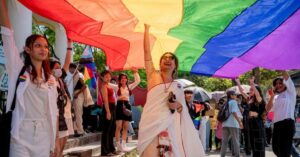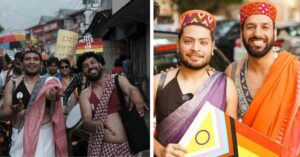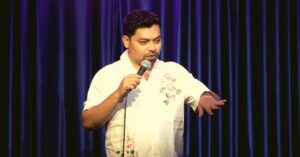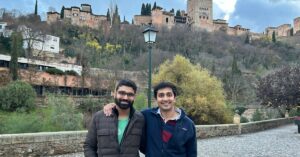‘I’m Gay & I Don’t Want a Fake Life’: The Man Making Manipur Safer for LGBTQ Community
Surviving a series of tragedies, Sadam Hanjabam created a safe haven for Manipur’s LGBTQ+ community through his organisation ‘Ya_All’.
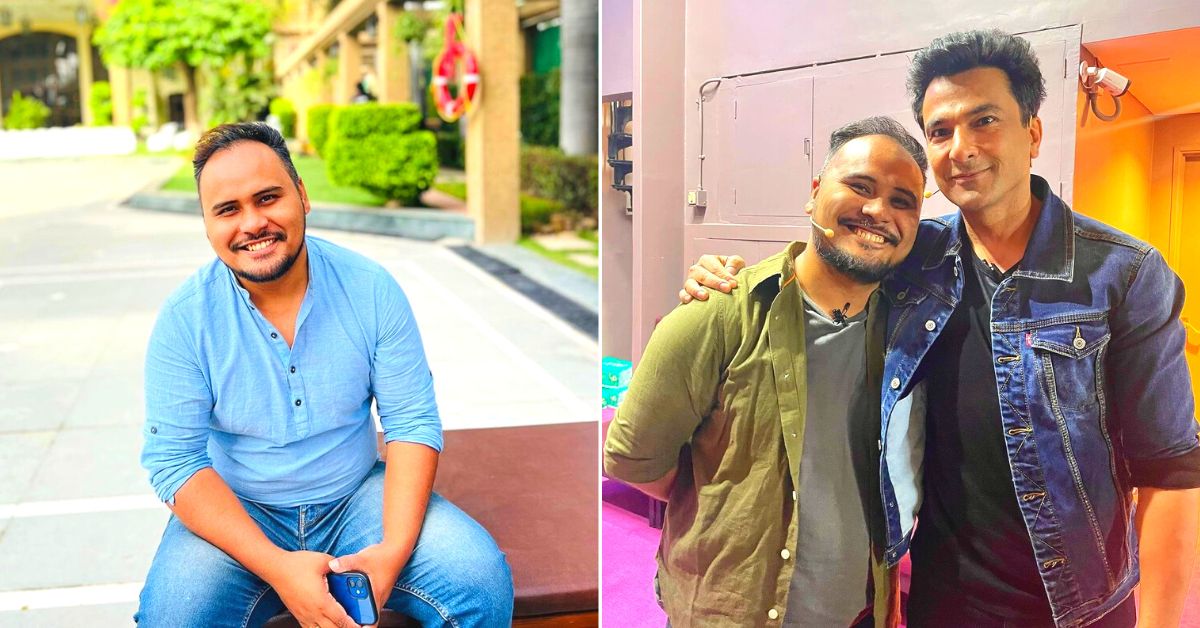
For Sadam Hanjabam, the founder of Ya_All — an Imphal-based non-profit organisation and the first-of-its-kind queer-youth-led and focused registered network based in the Northeast — the process of shooting for the Amazon Prime series ‘Rainbow Rishta’ was a real struggle.
Released last week, Rainbow Rishta celebrates queer love in India through the lens of six real-life stories, featuring Sadam’s incredible journey and his search for love. An introvert haunted by many past traumas, Sadam understandably found it difficult to talk about them and also navigate a new prospective relationship on camera.
Speaking to The Better India, the 35-year-old queer rights activist says, “During the shoot, I had many emotional breakdowns. When it’s about my work, I can speak endlessly. When it’s about my personal life, however, it’s a lot more difficult for me to talk. But the makers of Rainbow Rishta were upfront with me about invading my space and asking uncomfortable questions.”
In the documentary, he spoke about his history of substance abuse, the tragic circumstances of his ‘outing’ as a gay man, and his wide-ranging work with Ya_All, while also navigating a prospective relationship online and in person. And it’s a remarkable story.
Acceptance at the end of a dark tunnel
Sadam realised he was queer very early in his life. At six, he knew he was different from his peers because of his attraction to people from the same gender but didn’t have the vocabulary to define what these feelings meant to him.
“Growing up in Imphal, a small town with no internet and mobile phones, and living in a conflict zone with regular bouts of violence, there was no source of information about what it meant to be queer. I had no one to talk to about my queer identity,” he says.
Moreover, in states like Manipur, Sadam notes how a lot of intergenerational trauma passes unaddressed following the myriad of conflicts that have taken place. As children, he recalls how they were not allowed to step out after sunset. “You’re always hearing about firings, skirmishes, killings, etc. There was always a fear of police and the different conflicts taking place,” he says.
“Many young people from the Northeast migrate outside the region for higher studies or employment because of the situation back home. Layered with my queerness, one of my dreams as a young person was to get out of this region not because I hated it but to explore myself further and understand what I was going through. I wanted to see the world,” he adds.
After finishing high school in Manipur, Sadam studied at a varsity in Assam, following which he went for his master’s degree in Kerala. This was followed by an MPhil and PhD in Development Studies from the Tata Institute of Social Sciences (TISS) in Mumbai. Despite all this progress, Sadam was still dealing with a loss he hadn’t come to terms with yet.
“After my father’s passing in 2010, I became more anxious and insecure living away from Manipur. It also started getting harder for me to come out of the closet because my mother was in mourning. Even though I really wanted to come out to my family at one point, I kept it quiet (bottled up) for a very long time,” he recalls.
Mumbai was supposed to be the answer but Sadam couldn’t relate with the fast pace of life there, and he grew lonelier. Depression started to take hold because of all the things he was hiding from his family. But going back home wasn’t an option because it was not safe for queer people. Also, going back would have meant giving up on his academic pursuits.
Eventually, he met someone on a dating app for queer people. Given his fragile mental state, a little hope was enough to ignite that desire and love for another person. Instead, this relationship became his gateway to substance abuse. He began dabbling with crystal meth (methamphetamine) and mephedrone in 2015 while studying in Mumbai.
“Drugs became an outlet for me to not feel lonely anymore, be myself at least for a given moment and escape my harsh realities and traumas. A lot of drug use in the gay community is triggered by loneliness and rejection,” he says.
Matters came to a head in 2017 when he overdosed for the first time while working on his PhD. At the time, Section 377 of the Indian Penal Code (IPC) — which among other things criminalised homosexual acts — was also in force.
What followed was a series of traumatic events. Instead of care, support and treatment, the Mumbai hospital where Sadam was admitted called the police. The hospital said that they wouldn’t treat Sadam until an FIR was registered.
“Even though I was hospitalised, the kind of stigma and discrimination I faced from the hospital authorities and the police was traumatic. Hospitals are supposed to be safe spaces where you seek help, care and support when you’re not well. At my most vulnerable moment, a policeman began interrogating me about where I bought the drugs, who I bought it with, how much I paid for it, questions about my personal life, etc. I was shocked by their lack of empathy,” he says.
When the police questioned his peers, Sadam was outed as a gay man. Under the threat of police coercion, they had given up his queer identity without his consent. By the time his brother reached Mumbai from Manipur following the overdose, he also received this information. His family couldn’t believe that Sadam was gay since he didn’t fit the popular tropes or stereotypes associated with a homosexual identity. They struggled to come to terms with it.
Following his first overdose, Sadam was sent back home to Manipur for psychiatric treatment. The hospital even gave him a prescription for heavy medication for recovery. After four months, he was deemed to be better and sent back to Mumbai for his studies. But within a month of his return to Mumbai, he relapsed and overdosed again.
He was admitted to the same hospital, but this time they put him behind bars in an isolation ward and chained his hands to a hospital bed.
“This was such a traumatic episode that I was literally dead inside. I was dead out of shame and the nasty treatment I endured at the hands of the authorities. Instead of creating an environment where they would see me as a person in need of help, the hospital denied it. I was then passed on from one hospital and doctor to another, and given more medication. But nobody cared to listen to the reasons why I suffered from addiction and overdosed. Nobody was there to understand my pain,” he recalls.
Following the overdose, Sadam dropped out of his PhD programme and came back home.
“In my mind, one drug overdose episode was reasonable, but I had slipped up again. But at my lowest moment, I thought to myself that if I survived this, I really wanted to be myself. I didn’t want to live this life of fakeness. I didn’t care if anybody thought I was mad. I thought to myself that if I lived again for the third time, I would want to be myself without any fear. And this process began with accepting myself with all the vulnerabilities that I carried,” he says.
That acceptance allowed Sadam to start his journey towards recovery. It also sowed the seeds of Ya_All, which among other things, seeks to create safe spaces for queer people in Manipur.
“From that moment on, I began advocating for queer people, saying if you need help just reach out to me. I started giving out my phone number to anyone who needed to talk,” he recalls.
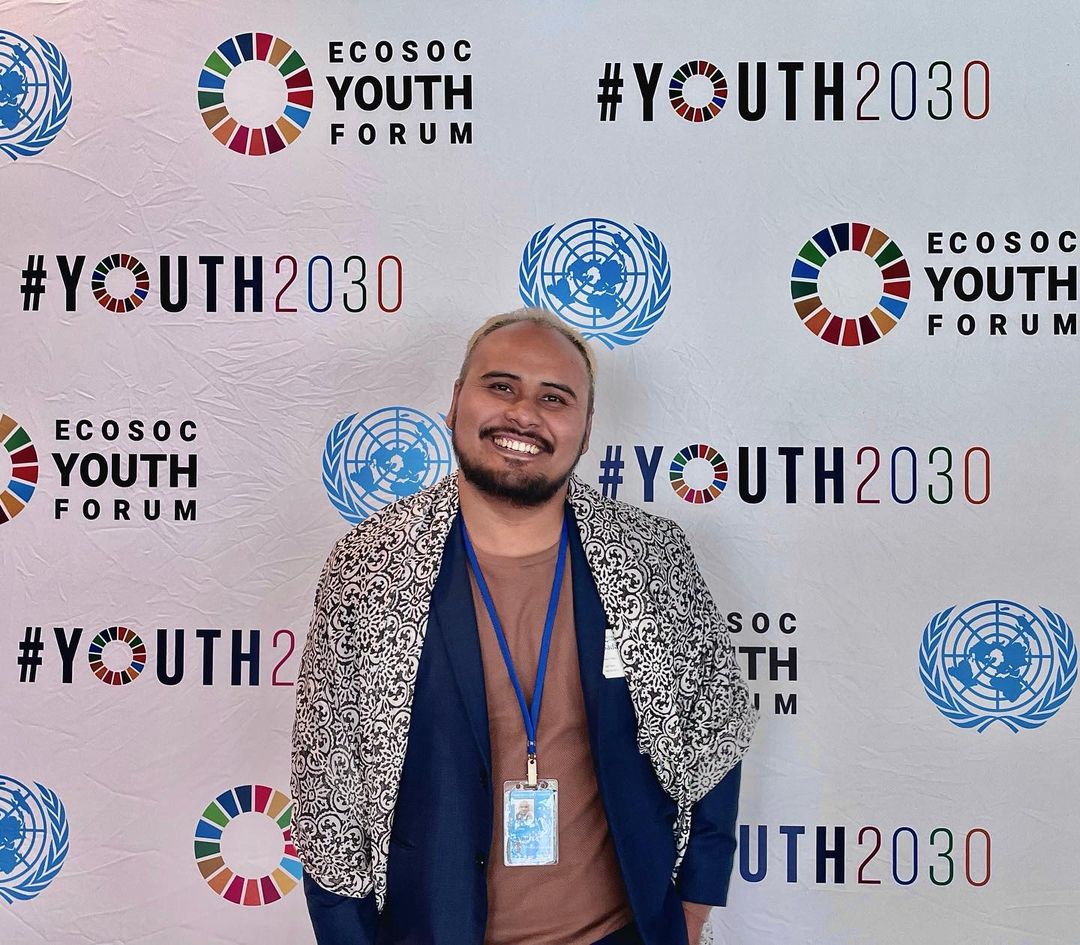
Recovery by creating a support system
Upon his return to Imphal in late 2017, Sadam started a WhatsApp group with his friends and also peers from the local queer community. It was a safe forum where they could support each other. It then proceeded to small gatherings like movie screenings at each other’s homes.
“I had no knowledge of running an organisation. Also, we didn’t have a lot of resources to do other things and I was still in recovery. The intention wasn’t to start an organisation but to create a support system for queer people in Manipur. Many people soon started reaching out to me and seeking support, but I wasn’t a professional at the time. I lacked the skills required to be a counsellor or a mental healthcare professional, but I was supporting them through my own story of struggle and recovery. A lot of people connected with my story, and as a result, a large network [of queer people] began to emerge,” he says.
Instead of organising events like a Pride Walk, Sadam and his young team began employing sports as a medium to create safe spaces for the queer community.
“In March 2018, we initiated Queer Games, a sporting event for LGBTQI+ people at the centre of Imphal. I was finding ways to integrate queer people into mainstream society, isolation from which has denied our community the support structures we need. We have suffered a lot of violence and harassment at the hands of police and the larger society,” he informs.
“I started using sports to integrate them back into mainstream society. Sports is what brings us together and connects us emotionally as a people. People in Manipur have a special connection with sports, particularly football. It doesn’t matter who’s playing the game, people will come and watch,” he adds.
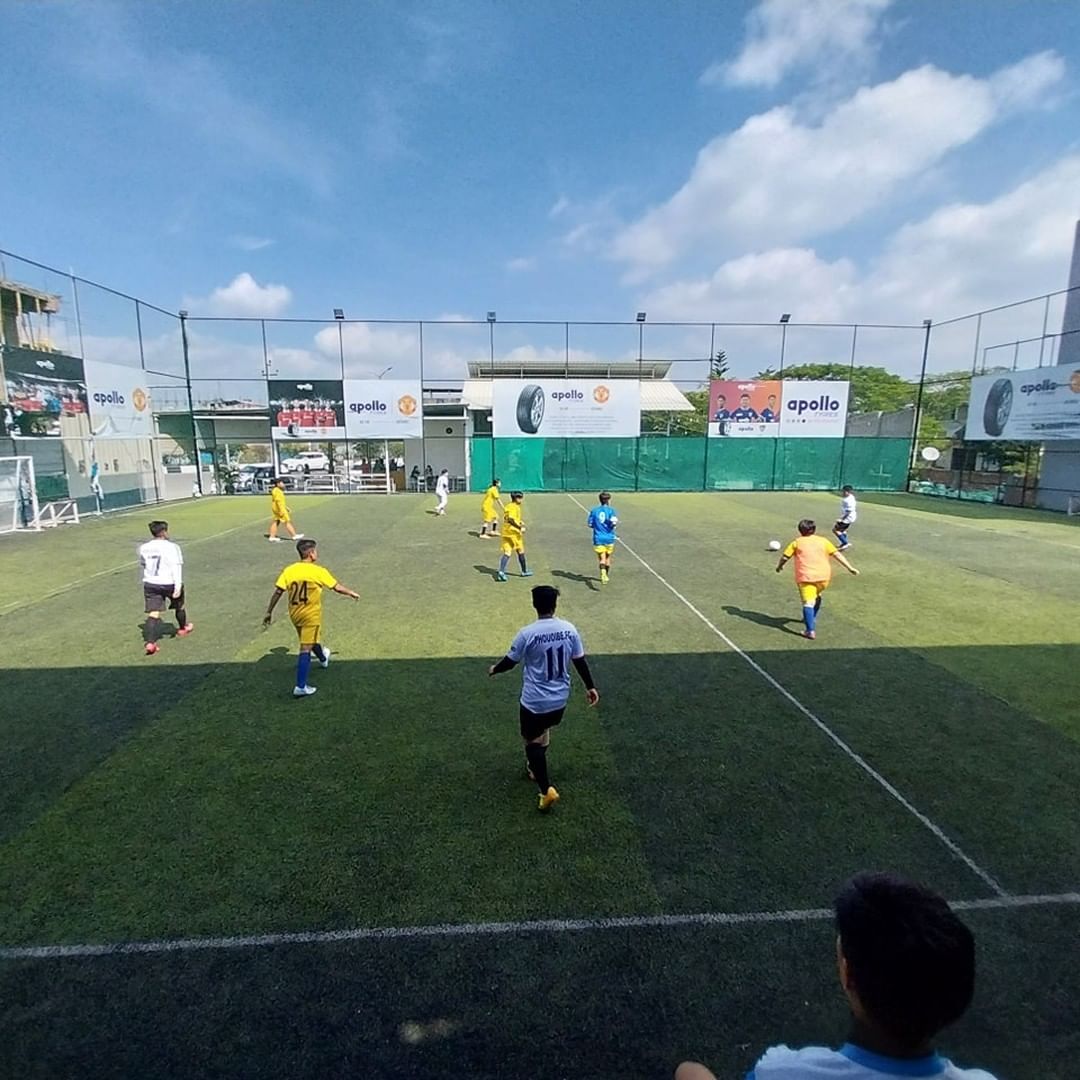
During the first edition of the Queer Games, many people just watched in amusement as they played. But when the public actually saw them play football, they grew curious. It surprised many to see their skill and determination on the field.
“This is precisely what happened when people saw our transmen and transwomen teams play football. This was a mind changer for many people and broke stereotypical notions they have of queer people. The Queer Games got our community a lot of attention,” recalls Sadam.
This year, Sadam’s non-profit Ya_All organised the sixth edition of Queer Games, which included a walkathon and a mixed-gender football tournament for the LGBTQI+ community.
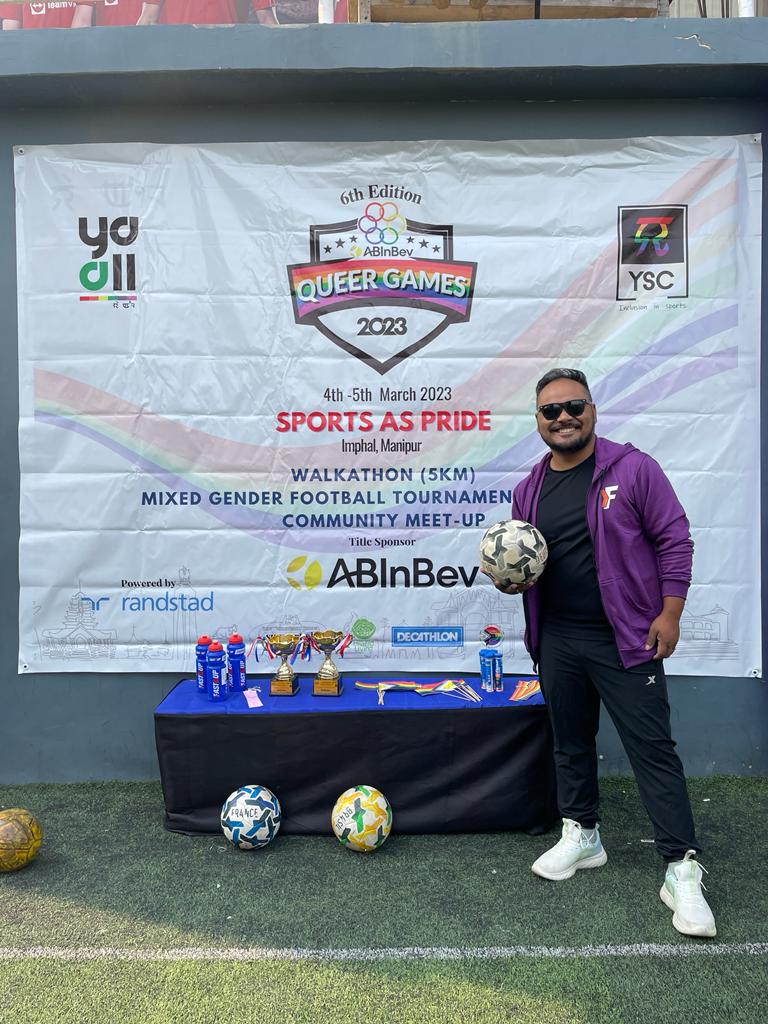
In March 2020, Ya_All established Asia’s and India’s first transgender men’s football team, a landmark moment for the state’s queer community. Given the buzz generated by a six-a-side match played between teams comprising transmen and transwomen in 2018, Sadam decided to create a football team of transgenders — something that had never been done before in India.
Also, ever since the Supreme Court recognised transgender as a third category of gender, Ya_All has been campaigning intensively to open a third category of gender in football. But, he says, governments and state and national football associations haven’t been very receptive to the idea.
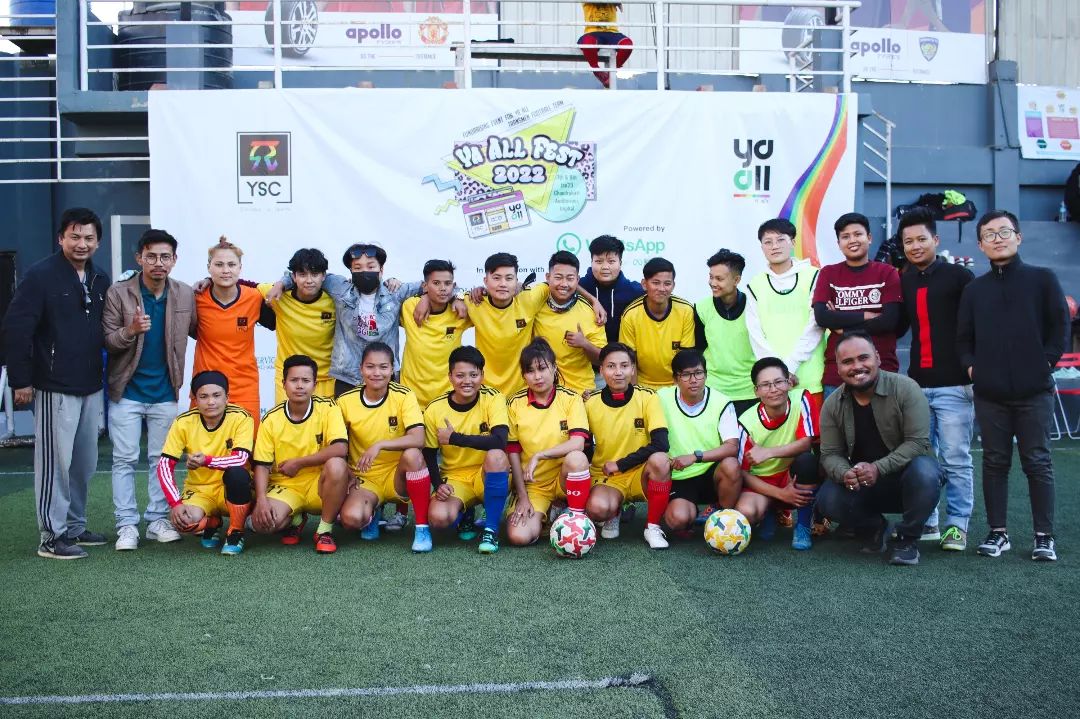
Shelter from the storm
Although Ya_All — read as Ya-wol in Manipuri meaning ‘revolution’ — had started as a support group for Manipur’s queer community in 2017, they registered themselves as a non-profit organisation only in June 2019. A month before they officially registered themselves as a non-profit organisation, they opened their Shelter Space for LGBTQI+ youth.
“One thing we know as queer people is that our homes are not always the safest spaces. Many queer people get kicked out of their homes out of ignorance and fear of what the larger society may think if their child doesn’t follow conventional rules of gender. Many queer people endure homelessness. In addition to all this, when there is a crisis like COVID-19 or the current armed conflict in Manipur, they don’t have a place to stay,” explains Sadam.
The shelter space is a crowdfunded initiative, informs Sadam, where queer people, who are rendered homeless, can stay for 10 days free of charge. After 10 days, if people can afford it, they are asked to pay Rs 100 per day for food, shelter, clothing and counselling.
“The first thing that happens when anyone enters this shelter is that they go through counselling by queer-affirmative mental health professionals,” he adds. The shelter does not currently provide de-addiction and psychosocial support. Queer persons at the shelter who are suffering from addiction are directed to reliable professionals who can provide that sort of care.
Also, Ya_All does not accept calls from parents who want to forcibly put their children in their centres. It’s imperative that the young and queer person in question gives their consent.
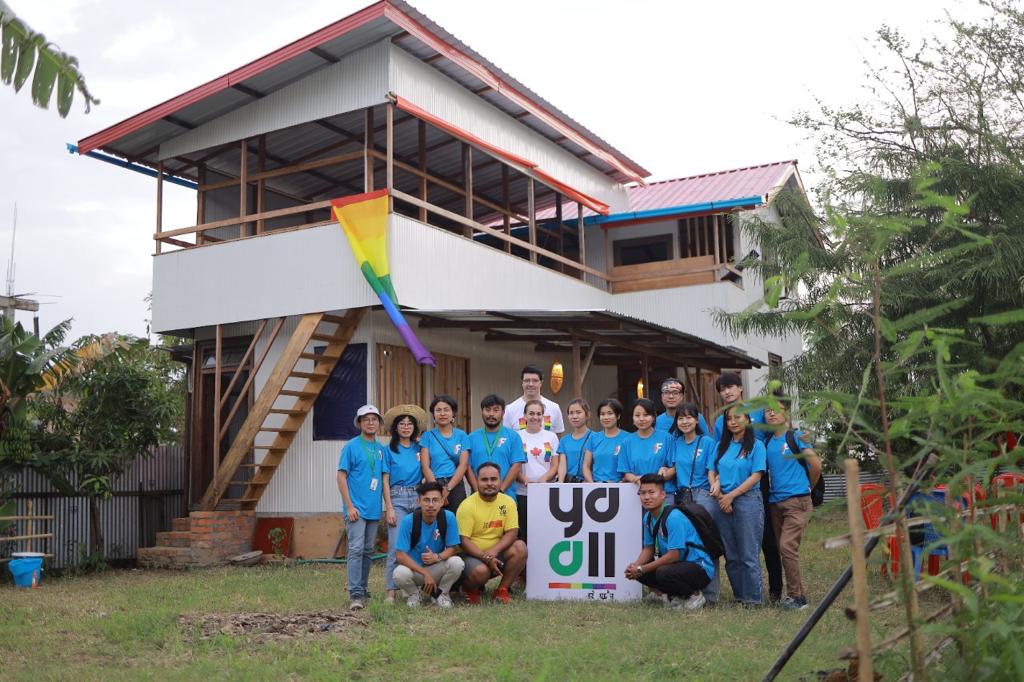
“Our task is to provide mental healthcare to any queer persons. It’s not about picking up people from the streets and filling out our centre just to get funding. Our work is to provide care and support to queer people who need it. As queer people with difficult lived experiences, we understand how it feels. For us, empathy is more important than funding,” he adds.
Last year, Ya_All also opened India’s first de-addiction centre for transgender men, which is run in partnership with the Government of Manipur. Called the Rainbow Trust Centre, it offers de-addiction and psychosocial support for two months free of charge.
“If a boy or girl identifies themselves as a transgender man or woman, they are forced to stay in rehabilitation centres catered to cisgender men or women. These aren’t safe spaces. Many queer people suffer sexual assault and harassment at these centres. Parents forcefully admit them into these centres for recovery without their consent. That is why we are working with the Manipur government’s social welfare department to create this space (de-addiction centre) for transgender men. It’s a new initiative but deeply personal to me,” he explains.
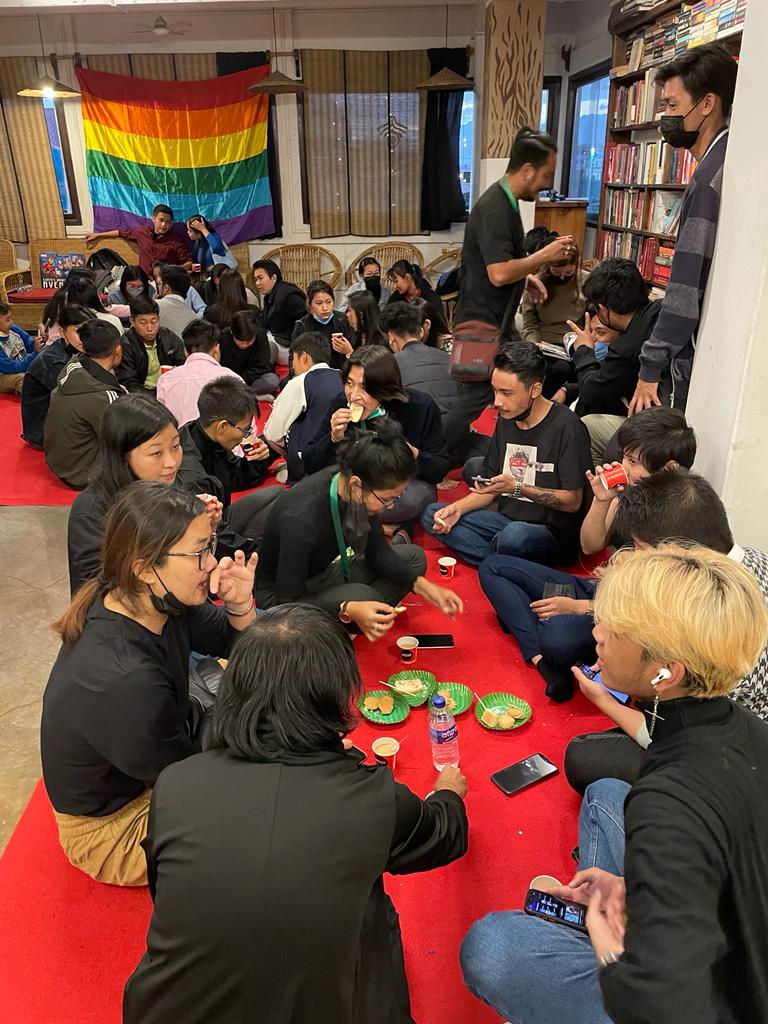
Khudol initiatives and the power of giving
‘Khudol’, which means gifts in Manipuri, is a people-led initiative implemented by Ya_All with the theme ‘joy of sharing’. The objective of these initiatives is to organise crowdfunding campaigns to help and support each other in times of need or during crisis.
The first Khudol initiative came together at the onset of the COVID-19 pandemic. You can read more about their work here.
In May 2020, the United Nations Secretary-General’s Envoy on Youth listed Khudol as one of the top 10 global initiatives for an inclusive fight against the COVID-19 pandemic. Even during the current armed conflict in the state or the natural disaster in Sikkim, Ya_All has organised similar Khudol initiatives.
“The year has been very difficult. We were under curfew for six months with our internet regularly disabled. There were a lot of people who lost their livelihoods, homes and businesses. Our job isn’t to point fingers. Our task as young queer people, who have long faced discrimination from everyone, was to help those in need navigate through this crisis. Since May, we have raised more than Rs 20 lakh and used that money to provide food, clothes, medicine, footballs, mattresses, counselling, etc to communities languishing in relief camps,” he claims.
When the conflict broke out and many were displaced to relief camps, Sadam notes that their first task was to provide basic needs like food, water, shelter, clothing, etc.
“Since the conflict broke out, we have supported more than 10,000 people in relief camps. The tragedy, however, is that we only have access to relief camps in the Valley. During our visits to these relief camps, we saw many children and adolescents who were seeing conflict for the first time and didn’t understand what was going on. In addition to past trauma, their parents are further traumatised by the fact that they’ve lost everything from their homes to family members and livelihoods. It’s hard for them to control their children given their own traumas,” he explains.
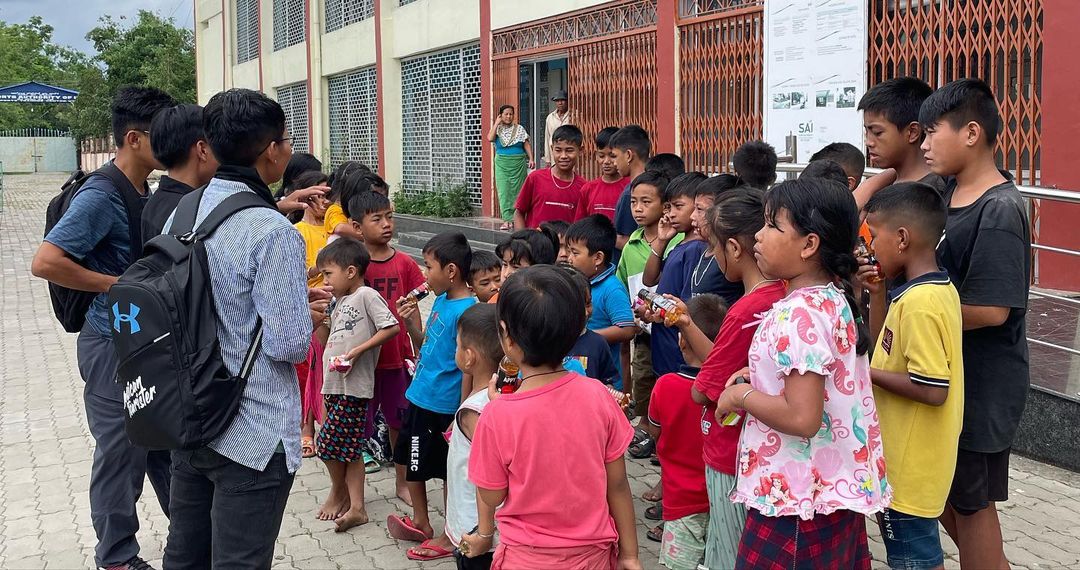
“With the help of our transgender team, we started going to these relief camps with access to a field and offered football training to these children. These training sessions would last a week in one relief camp before we would visit another and so on. These transgender players would take children out of the relief camp, train them for a couple of hours, and play with them to let them feel like children again. We used football to bring some light back into their lives,” he adds.
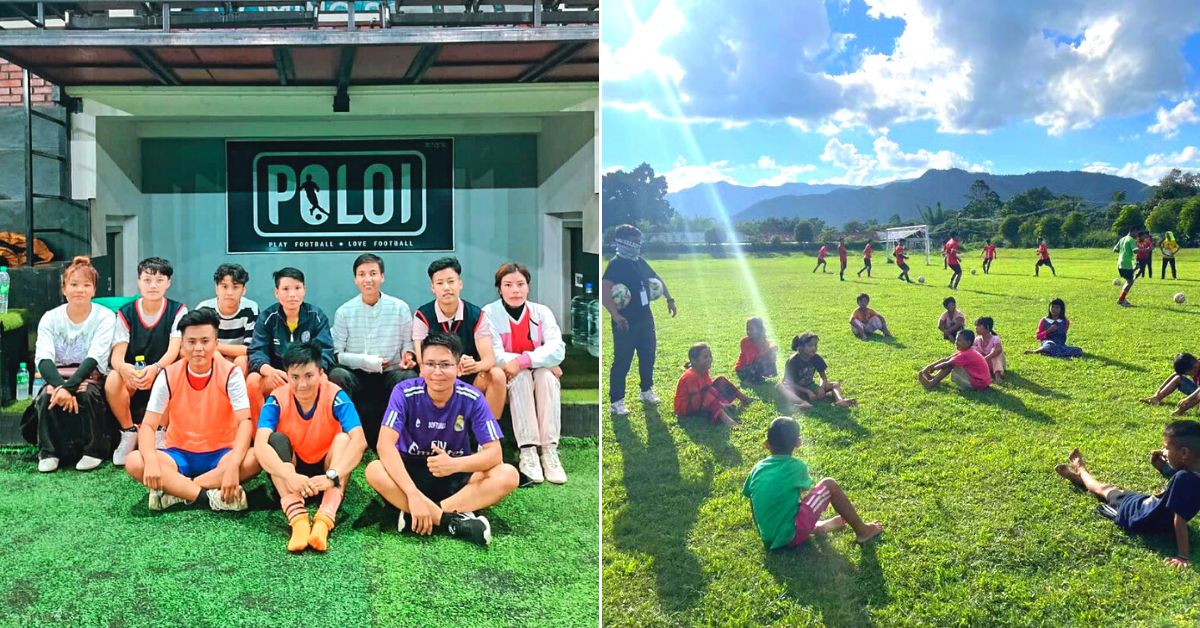
Coming full circle
The lengths Sadam has gone to create safe spaces for queer youth in Manipur is nothing short of remarkable. However, when the makers of the Amazon Prime series Rainbow Rishta shed light on his personal life, there were moments where he was clearly uncomfortable talking about it. But what the process of shooting the documentary did was help him come to terms with it.
“What the entire shooting process helped me realise is that I had drowned myself in work and as a result became very lonely again. In the process, I had forgotten to live my personal life. I had to ask myself who I was without my work. The series compelled me to have these conversations about myself and also with my parents who were informed of the shoot,” he says. If you found our stories insightful, informative, or even just enjoyable, we invite you to consider making a voluntary payment to support the work we do at The Better India. Your contribution helps us continue producing quality content that educates, inspires, and drives positive change. Choose one of the payment options below for your contribution- By paying for the stories you value, you directly contribute to sustaining our efforts focused on making a difference in the world. Together, let’s ensure that impactful stories continue to be told and shared, enriching lives and communities alike. Thank you for your support. Here are some frequently asked questions you might find helpful to know why you are contributing?

“The writers and directors were helping me talk about my past and helping my parents talk about their son, and in that process, even though my coming out was a tragic episode, this felt like a real coming out moment. People from all over India are now connecting with me online and sending me uplifting messages. I don’t feel alone anymore,” he says.
(Edited by Pranita Bhat; Images courtesy Sadam Hanjabam/Ya_All)
This story made me
-
97
-
121
-
89
-
167





